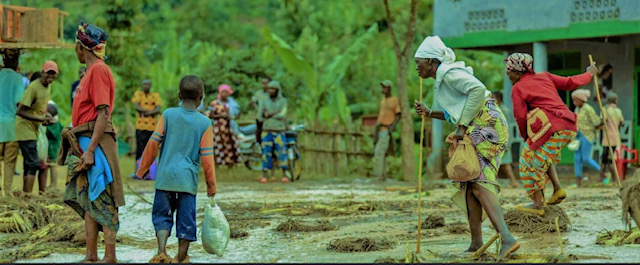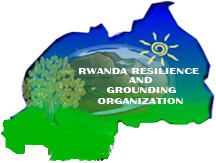
Even though Climate change is not a new issue, the effects of climate change are more severe since they develop swiftly and have a wide range of consequences. In-depth research on acute climate change-related extreme events (such as hurricanes, floods, and heatwaves) has dominated climate change and mental health research (Cianconi et al., 2020).
The bulk of the flood/Landslide -related effects we witnessed in Rwanda were those connected to an elevated risk of several mental health difficulties, including posttraumatic stress disorder (PTSD), depression, anxiety, and an aggravation of pre-existing mental health diseases (Korukire et al., 2019; Velin et al., 2021). There is a significant gap in the literature, research, and intervention that address the trauma linked with flooding in Rwanda

Rwanda has undergone a netherworld occurrence of flooding in the west-northern region of the country in the last two weeks, destroying houses, killing children’s wives, and wiping out some households. The Rwanda National Television reported more than 131 deaths and over 5,000 demolished homes, with some victims given new lives in churches and schools. However, the victims’ distress and PTSD are undeniable. Numerous trauma factors in Rwandan society contribute to worsening Rwandan mental health.
Regardless of the effects of flooding, it frequently added secondary stressors, such as financial strain, displacement, and disruptions in social support networks, which can exacerbate mental health risks, particularly for individuals and groups with preexisting vulnerabilities or who are highly exposed to genocide-related trauma (Pham et al., 2004).
To address the issues, the Rwandan government, non-governmental organizations (NGOs), and other generous individuals are collaborating to develop adaptable strategies to address the mental health consequences of flooding, such as social capital, a sense of community, government assistance, access to resources, community preparedness, intersectoral/transdisciplinary collaboration, vulnerability and adaptation assessments, communication and outreach, mental health literacy, and culturally appropriate interventions. It is critical to support efforts to prevent mental health disorders, such as PTSD, depression, and complicated grief, by offering community-based mental health interventions to victims that can enhance resilience and increase the ability to adapt and trauma healing in Rwanda (Habimana et al., 2021)
Rwanda Resilience and Grounding Organization (RRGO) is working collaboratively with other partners to respond to this mental health-related concern in Rwanda.
References
Cianconi, P., Betro, S., & Janiri, L. (2020). The Impact of Climate Change on Mental Health: A Systematic Descriptive Review. Front Psychiatry, 11, 74. https://doi.org/10.3389/fpsyt.2020.00074
Habimana, S., Biracyaza, E., Habumugisha, E., Museka, E., Mutabaruka, J., & Montgomery, S. B. (2021). Role of Community Resiliency Model Skills Trainings in Trauma Healing Among 1994 Tutsi Genocide Survivors in Rwanda. Psychol Res Behav Manag, 14, 1139-1148. https://doi.org/10.2147/prbm.S319057
Korukire, N., Bozzi, L., Banamwana, G., Birasa, L., Ineza, M. C., Rumagihwa, L., Cishahayo, E. U., Kayitesi, I., & Akanbi, M. O. (2019). Climate Change and Mental Health: New Model of Managing Mental Health Illness Resulting From Climate Change Events. Rwanda Perspective. Rwanda Journal of Medicine and Health Sciences, 2(1), 62-65.
Pham, P. N., Weinstein, H. M., & Longman, T. (2004). Trauma and PTSD symptoms in Rwanda: implications for attitudes toward justice and reconciliation. Jama, 292(5), 602-612. https://doi.org/10.1001/jama.292.5.602
Velin, L., Donatien, M., Wladis, A., Nkeshimana, M., Riviello, R., Uwitonze, J.-M., Byiringiro, J.-C., Ntirenganya, F., & Pompermaier, L. (2021). Systematic media review: A novel method to assess mass-trauma epidemiology in absence of databases—A pilot-study in Rwanda. PLoS One, 16(10), e0258446.
